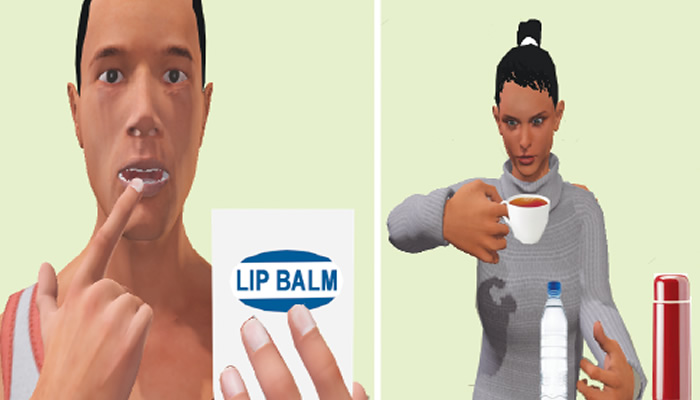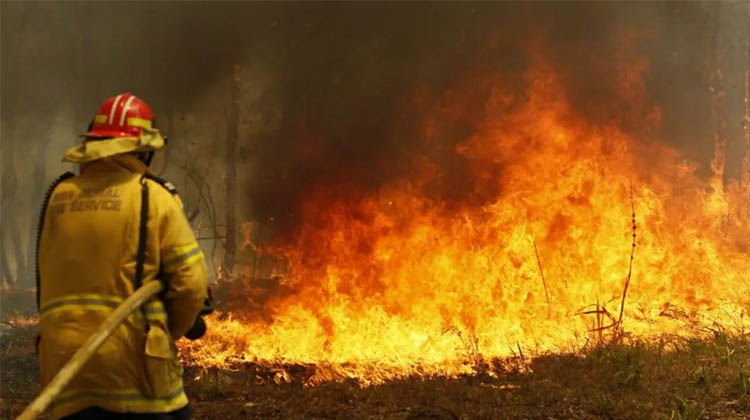10 tips to stay healthy, safe during harmattan
As the Harmattan season approaches, with its dry, dusty winds and cooler temperatures, it’s important to prepare for its unique challenges.From health risks like dehydration and respiratory issues to safety concerns such as increased fire hazards, being proactive can make a significant difference.
The press reports that in Nigeria, the harmattan season typically occurs between November and March.The peak of harmattan is usually in December and January when the dry, dusty winds from the Sahara Desert are at their strongest, leading to cooler temperatures, low humidity, and poor air quality.The season gradually tapers off by March, with temperatures rising again as the rainy season begins.By following simple yet effective tips, you can stay healthy, comfortable, and safe throughout the season.
Here are 10 detailed tips to navigate the approaching harmattan season:
Stay Hydrated: The dry air during harmattan can easily lead to dehydration. To maintain healthy skin and prevent fatigue, drink plenty of water throughout the day, even if you don’t feel thirsty. Carry a water bottle with you to ensure constant hydration.

Moisturise Your Skin: The low humidity and cold winds can dry out your skin. Apply oil-based moisturisers, lotions, or petroleum jelly to areas that are more prone to dryness, like your hands, face, and lips. Make sure to moisturise at least twice a day—morning and night—for maximum protection.
Wear Protective Clothing: Harmattan mornings can be chilly, while afternoons may become hot and dusty. Layering your clothes allows you to adjust easily to the changing temperatures. Opt for lightweight, breathable fabrics but include a scarf or shawl for warmth in the mornings. Wearing long sleeves and trousers can also protect your skin from dust.
Use a Face Mask or Scarf: The dust and particulate matter in the air during harmattan can irritate your respiratory system. Wearing a face mask, scarf, or cloth over your nose and mouth when outdoors helps filter out the dust and reduces the risk of breathing issues, especially for those with asthma or allergies.
Keep Your Home Clean: Dust accumulation is a common challenge during harmattan. Dust regularly to keep your home clean, especially in areas where dust settles, such as shelves, window sills, and electronics. Use a damp cloth to wipe surfaces to prevent dust from scattering back into the air.
Increase Vitamin C Intake: The cooler weather can weaken your immune system, making you more susceptible to colds and flu. Eating vitamin C-rich fruits like oranges, tangerines, guavas, and lemons can help boost your immune defenses and improve your body’s ability to fight off infections.
Protect Your Eyes: Harmattan dust can irritate the eyes and cause dryness or redness. Wear sunglasses or protective eyewear when outdoors to shield your eyes from dust particles and wind. Artificial tears or eye drops can also help keep your eyes moist and comfortable.
Use a Humidifier: The air during harmattan is extremely dry, which can lead to discomfort, especially indoors. A humidifier helps add moisture to the air, keeping your skin hydrated and reducing irritation in your respiratory system. If you don’t have a humidifier, you can place bowls of water near heaters or radiators to increase humidity levels.
Be Fire-Safe: The dry conditions during harmattan make vegetation and homes more vulnerable to fires. Exercise extra caution with fire hazards, such as open flames, stoves, and candles. Always ensure that cooking equipment is turned off after use, and avoid leaving fires unattended. Keep fire extinguishers accessible.
Keep Your Environment Dust-Free: To minimise exposure to dust, seal windows and doors to prevent it from entering your home. Use insect screens where possible to keep dust and insects out. You can also use air purifiers to help remove dust particles from the air indoors, creating a healthier living environment.It’s essential to note these tips for navigating the harmattan season because the season’s unique characteristics can significantly impact health, safety, and overall well-being.Here’s why:
1. Health ProtectionRespiratory Issues: The dry and dusty air can worsen conditions like asthma, bronchitis, and allergies. Protecting your airways is crucial to preventing respiratory distress.Dehydration and Skin Problems: The low humidity can lead to dehydration, cracked skin, and chapped lips, which can become painful or lead to infections.
2. Fire SafetyIncreased Fire Risks: Harmattan’s dryness lowers humidity, making vegetation and homes more susceptible to fire outbreaks. Awareness helps reduce fire hazards.

3. Comfort and AdaptabilityTemperature Fluctuations: Mornings can be very cold, and afternoons hot and dusty. Proper dressing and hydration ensure comfort and readiness for these swings.
4. Disease PreventionBoosting Immunity: Seasonal illnesses like the common cold, flu, and respiratory infections spike during harmattan. A strong immune system, supported by a healthy diet, can mitigate these risks.
5. Hygiene and CleanlinessDust and Allergens: Dust accumulation can trigger allergies and create an unhealthy living environment. Regular cleaning minimises these risks and promotes comfort.
6. Sustainable LivingEfficient Use of Resources: Understanding how to deal with dryness (e.g., using humidifiers) and conserve water prepares households for the environmental demands of the season.Being proactive ensures that harmattan, with all its challenges, can be managed effectively, preventing minor inconveniences from escalating into significant problems.






